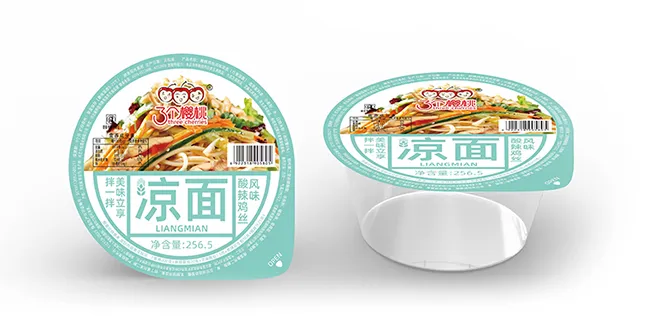soba noodles what are they
Everything You Need to Know About Soba Noodles
Soba noodles are a traditional Japanese noodle made from buckwheat flour, and they hold a special place in Japanese cuisine. The word soba translates to buckwheat and is often used to describe the thin, brown noodles that are celebrated for their unique flavor and health benefits. Over the years, soba has garnered international recognition, not only for its taste but also for its nutritional value.
Origins and History
The origins of soba noodles can be traced back to the Edo period (1603-1868) in Japan, where buckwheat was favored for its ability to thrive in poorer soil conditions compared to rice. The utilization of buckwheat reflects the agricultural practices of the time and the emphasis on food that was both nourishing and adaptable to the local climate. Initially, soba was primarily consumed in the northeastern regions of Japan, but as its popularity grew, it began to spread throughout the country, leading to a variety of regional styles and preparation methods.
Types of Soba
Soba can be categorized into two main types 100% buckwheat soba and haru soba, which are made from a mixture of buckwheat and wheat flour. Pure buckwheat soba is denser and has a more robust flavor, while the combination with wheat flour creates a smoother texture and is easier to handle. Regardless of the type, soba noodles are celebrated for their earthy taste and pleasant texture, making them a versatile ingredient in many dishes.
Health Benefits
One of the most significant advantages of soba noodles is their nutritional profile. Buckwheat is rich in complex carbohydrates, fiber, and high-quality protein, making it an excellent choice for those seeking a healthy meal. It also contains essential amino acids, vitamins, and minerals, particularly manganese, magnesium, and phosphorus. The presence of flavonoids, such as rutin, provides antioxidant properties that contribute to maintaining heart health and regulating blood sugar levels.
soba noodles what are they

Unlike noodles made from refined wheat, soba noodles provide a more balanced energy release, making them an excellent option for athletes and health-conscious individuals. Additionally, many varieties of soba are gluten-free, particularly those made entirely from buckwheat, which allows those with gluten sensitivity to enjoy a delicious noodle option.
Culinary Uses
Soba noodles are incredibly versatile and can be enjoyed in various dishes. They can be served hot or cold, with toppings and sauces that enhance their flavor profile. One popular way to enjoy soba is in soba soup, a hot broth made from dashi and soy sauce, often garnished with green onions, tempura, or mushrooms.
Cold soba, known as zaru soba, is another popular dish, where the noodles are served chilled on a bamboo mat alongside a dipping sauce called tsuyu. This dish is particularly refreshing during the hot summer months. Soba can also be incorporated into salads, stir-fries, and even served with savory toppings like a fried egg or grilled meat.
Cooking Soba Noodles
Cooking soba noodles is relatively straightforward. It is essential to bring a large pot of water to a boil and add the soba noodles without overcrowding the pot. They typically cook for about 4-6 minutes until they are tender but still firm to the bite. After cooking, drain the noodles and rinse them under cold running water to stop the cooking process and remove excess starch.
In conclusion, soba noodles are a delicious and nutritious addition to any meal. Their unique flavor, health benefits, and culinary versatility make them a staple in Japanese cuisine. Whether enjoyed in a comforting bowl of soup or as a refreshing cold dish, soba noodles offer a delightful experience that is worth exploring. As the world becomes more health-conscious, incorporating soba into your diet could be a delicious and beneficial choice.
-
Unleash Your Inner Chef with Delectable Italian Pasta CreationsNewsAug.01,2025
-
Savor Health and Flavor: Irresistible Soba Noodles for Sale Await!NewsAug.01,2025
-
Nourish Your Body with Premium Organic Ramen - A Culinary Delight AwaitsNewsAug.01,2025
-
Elevate Your Dishes with Our Exquisite Kinds of Egg NoodlesNewsAug.01,2025
-
Dive into Flavorful Convenience with Our Ramen OfferingsNewsAug.01,2025
-
Discover Exquisite Types of Naengmyeon and Chilled Soba NoodlesNewsAug.01,2025
-
Is Whole Wheat Pasta Healthy?NewsMay.30,2025
Browse qua the following product new the we

















































































































